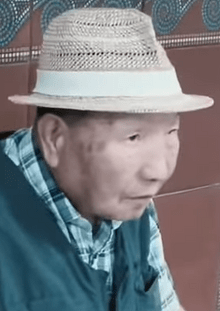Iwao Hakamata, an 89-year-old Japanese man, has been awarded a record-breaking compensation payout of 217 million yen ($1.45 million) for his wrongful conviction and nearly five decades spent on death row. Hakamata’s case is one of Japan’s most infamous and longest-running legal sagas, with his lawyers hailing the payout as the country’s largest-ever compensation award in a criminal case.
Hakamata’s ordeal began in 1966 when he was working at a miso processing plant in Shizuoka, west of Tokyo. The bodies of his boss, his boss’s wife, and their two children were recovered from a fire at their home, with all four having been stabbed to death. Authorities accused Hakamata of the murders, arson, and theft, despite his initial denial of any involvement.
Hakamata’s lawyers argued that he was subjected to coercive interrogation techniques, including beatings and prolonged questioning, which led to a false confession. The confession was later used as key evidence in his trial, resulting in a death sentence in 1968.
For years, Hakamata’s lawyers fought to clear his name, pointing to inconsistencies in the evidence and allegations of police misconduct. A major breakthrough came when DNA evidence recovered from the victims’ clothing was found not to match Hakamata’s DNA. This new evidence led to Hakamata being granted a rare retrial in 2014.
However, the retrial process was prolonged, with proceedings taking years to complete. Hakamata’s mental and physical health deteriorated significantly during his time on death row, with his lawyers arguing that he suffered “extremely severe” mental and physical pain.
In September last year, Hakamata was finally acquitted of the murders, with the court ruling that the evidence against him was flawed. The acquittal was met with cheers of “banzai” (hurray) from the crowd, although Hakamata was unable to attend the hearing due to his poor health.
The Japanese government has now agreed to pay Hakamata 217 million yen in compensation, a sum that his lawyers believe is the largest-ever payout in a Japanese criminal case. The payout is seen as a vindication of Hakamata’s long fight for justice and a recognition of the suffering he endured during his nearly five decades on death row.
Hakamata’s case has raised serious questions about Japan’s justice system, including the use of coercive interrogation techniques and the reliance on flawed evidence. The case has also highlighted the need for greater protections for defendants’ rights and the importance of ensuring that justice is served in a fair and timely manner.



